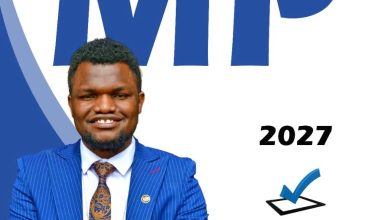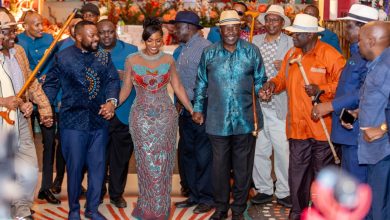
Former Interior Cabinet Secretary Dr. Fred Matiang’i’s long-awaited interview on Citizen TV has ignited a firestorm of debate online, exposing the deep divisions in public perception of his leadership style, legacy, and potential political ambitions.
For some, Matiang’i came across as calm, measured, and deeply loyal to the “system” — refined, disciplined, and unwavering in his defense of the state. For others, his stoic responses masked a deeper unwillingness to confront past state excesses or offer a transformative vision for the future.
System’s Loyalist or Reformist?
In the interview, Matiang’i projected the image of a principled insider — someone who understands the machinery of government and adheres to its code of silence. When pressed, he refrained from disclosing sensitive details, invoking official confidentiality. But this loyalty raised concerns among critics who felt he was evasive and unrepentant about actions taken during his tenure.

photo credits .
Some compared his answers to those often given by current Transport Cabinet Secretary Kipchumba Murkomen — technocratic, procedural, but blind to the deeper causes of public dissent.
Dodging the Gen Z Uprising’s Root Causes
Perhaps most damning was Matiang’i’s superficial reading of the recent Gen Z-led protests. He dismissed their socio-economic roots, instead suggesting the unrest could have been preempted through better intelligence. This, observers argue, was a tone-deaf interpretation that reduced a youth-led movement for justice and dignity into a mere lapse in security protocols.

Wafula Buke during the June 25th Protest on the streets of Nairobi ~Photo courtesy.
“He ignored the genesis of the conflict,” one observer remarked. “He sees the solution in surveillance, not social reform.”
No Regrets, No Apologies
Matiang’i’s admission that he harbors no regrets about his time as Interior Minister — a period marred by allegations of state brutality — left a bitter taste in the mouths of many. Unlike leaders such as Tanzania’s Julius Nyerere who famously acknowledged his mistakes, Matiang’i offered no such humility.
He denied making the inflammatory “chingororo” remarks, despite widespread recollection. Critics argue that an honest admission — even under the principle of collective responsibility — would have shown emotional intelligence and leadership maturity.
Unrepentant, Unyielding
His criticism of the public for being dishonest and overly critical of government raised further eyebrows. Rather than offering a path toward reconciliation or policy shift, Matiang’i doubled down on the status quo.
“He had the chance to point Kenya toward a different future — but chose business as usual,” lamented one viewer.
The World Bank’s Candidate?
To some, Matiang’i represents the polished face of a neoliberal agenda. There are concerns that should he ascend to the presidency, privatization — seen by many as a euphemism for economic looting — will continue. Critics dubbed him “the World Bank’s candidate,” warning that social justice and restitution for historical wrongs are unlikely to be his priorities.
“He said nothing about justice for the murdered Gen Z. Nothing about restitution. Only the usual bureaucracy,” a commentator noted.
Presidential Material – With Limits
Matiang’i’s no-nonsense demeanor — which once made him a darling of reformist technocrats — now appears to be a double-edged sword. While some admire his discipline and work ethic, others caution that his leadership would likely be authoritarian, overly forceful, and inadequately consultative.
“Benevolent dictatorship is still dictatorship,” a viewer quipped online.
Final Take: Who Is Matiang’i, Really?
Matiang’i might be the kind of leader who can bring order — but at what cost? He did little to assuage fears about inclusivity, historical justice, or youth alienation. And while some would vote for him if he were the sole challenger to President William Ruto, many want to hear what other voices, such as former Chief Justice David Maraga, have to say first.
In the end, the interview painted a portrait of a man deeply embedded in the state — with all the benefits and baggage that come with it.
What’s your take on Matiang’i’s interview? Is Kenya ready for his kind of leadership? Share your thoughts in the comments.
Credit to SNR Wafula Buke FB page.






